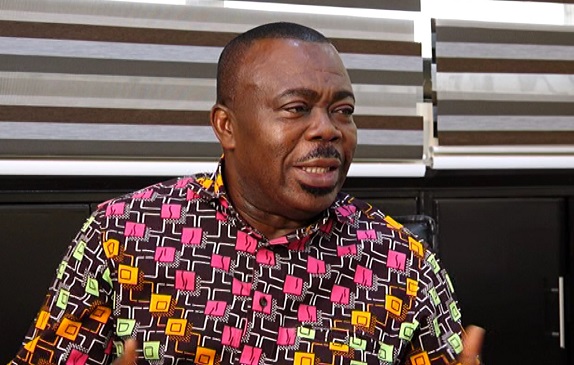Minister for Chieftaincy and Religious Affairs, Stephen Asamoah Boateng, has called for calm and unity among Bawku residents, urging them not to politicise escalating tensions triggered by the murder of 15 victims.
His appeal comes amid rising security concerns following a tragic attack on Sunday, October 27, when gunmen ambushed travellers on the Bolgatanga-Tamale highway near Gbimsi, a community near Walewale.
The gunmen set up roadblocks and allegedly picked out Kusasis for their killing spree, according to reports.
Passengers caught in the blockade underwent identity interrogations; 15 people were killed while two vehicles were set on fire.
READ ALSO: 8 travellers gruesomely murdered in Bawku conflict
Addressing the media on Tuesday, October 29, the minister assured residents that the government, through his ministry and collaboration with other relevant bodies, is committed to working impartially with all parties involved.
“I will implore all sides to stop the conspiracy theories going around and the blame games and keep calm and allow the government to deal with the security and chieftaincy issues therefore. No one should play politics with this sensitive matter and I will continue to engage my colleagues in the political arena from all sides to work with the government to resolve the current problems and work towards lasting peace in the area.”
Mr Asamoah Boateng further urged the traditional leaders in the area to refrain from acts that may escalate the conflict.
“I strongly call on the traditional leaders from both sides to refrain from any act that will escalate the situation.”
Meanwhile, the Government has imposed a curfew on Bawku following the return of Seidu Abagre, who was enskinned as Bawku Naba in February 2023.
The curfew, which commences on October 28, 2024, and lasts from 6 pm to 6 am, aims to restore peace and order in the area.
The decision was made after an emergency national security meeting, chaired by President Nana Addo Dankwa Akufo-Addo, due to significant disturbances affecting public peace and security in Bawku and its environs.
These disturbances have resulted in the loss of numerous lives, with a looming threat of escalation beyond Bawku.
The Bawku chieftaincy dispute dates back to 1931. It revolves around the occupation of the Bawku skin, which represents chiefly authority in the Bawku traditional area.
The conflict between the Kusasi and Mamprusi ethnic groups has been ongoing, with historical contestation and political interference fueling tensions.
In recent years, the conflict has been characterized by recurring waves of violent clashes, resulting in deaths, injuries, and property damage.
The surge of arms in Bawku has also contributed to the conflict’s escalation, with many residents feeling obliged to arm themselves for protection.
















